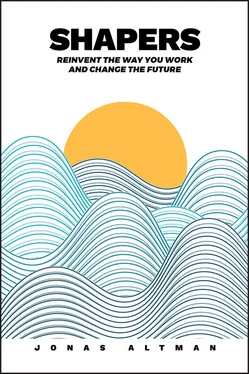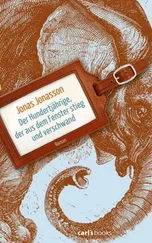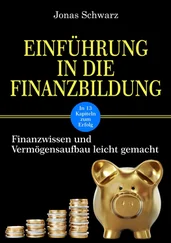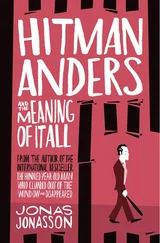In the 16 thcentury, with the protestant work ethic exalted by Martin Luther, the concept of work emerged as a moral duty. The sacrifice of a hard day's work meant you were helping humanity progress. Wealth creation and accumulation was no longer a vice or an advantage–it was your sweet obligation.
The force that produced this duty was the ‘Creed associated with the name Calvin. Capitalism was the social counterpart of Calvinist theology,’ wrote economic historian R. H. Tawney. Work was not only for economic means but also as a spiritual end. Similarly today, in the spirit of capitalism and economic self‐interest, we seek salvation through an ‘orgy of materialism’.
When married to religion, the spirit of hard work was evident in even the most mundane professions. Endless toil could be justified because God, well, blessed it didn't he? With the industrial revolution of the 18 thcentury came a change in our work ethic: a myopic focus on the returns for the individual. The meaning of work veered away from internal motivations to external rewards. Productivity and pay became the principal agenda of work.
Over time, these industrial‐age attitudes were baked like layers of lasagna into our organisations. Cemented further by Adam Smith's ‘Wealth of Nations’, our division of labour meant breaking work down into the smallest, most mundane activities so as to produce more widgets faster. Smith believed that fundamentally people were lazy gits. He thought that so long as you paid someone a decent wage, it didn't really matter what job they performed. Dangling carrots would induce workers to work harder.
Individual control over the techniques and quantity of personal production began to fade with the rise of automation. The race against the machines began. If you worked in agriculture or crafts, you might advance upward in society. Otherwise, you were aware that your job was expendable and soon to be performed by a machine. This is indeed a conundrum in which many of today's Uber drivers may find themselves.
When Frederick Winslow Taylor, the first management consultant, snagged the baton from Smith, the batching of work found its soulmate in a new management practice. Taylorism began with the question, ‘How many tonnes of pig iron bars can a worker load onto a railcar in one working day?’ Its ‘scientific management’ involved managers closely controlling workers with the objective of maximising efficiency, consistency, predictability, and productivity.
Just think of the Ford Motor Assembly Line. No doubt Henry Ford chose black for the Model T Classic simply because this colour dried the fastest and would trim production time.
Organisations then competed for control over finite resources like coal and iron. Since everything was vertically integrated, business success meant outmaneuvering the competition while labourers were reduced to cogs in the machine.
This period also gave birth to the short‐time movement; the 8‐hour workday and 40‐hour workweek that are familiar benchmarks today. While temporarily shortened to 30‐hour weeks during the Great Depression in America, after World War II it snapped right back. It lent well into a straight shot of overtime, wage increases, and benefits still keenly protected.
Economist John Maynard Keynes, who envisaged we'd work a 15‐hour work week, would certainly be scratching his head. Science and compound interest have hardly led the masses to live in leisure–in the process losing the chance to ‘Live wisely and agreeably and well’. While we have made tremendous progress, our enhanced productivity has resulted in the insatiable desires and relentless consumerism which comprise our modern collective psyche.
WORK AS AN EXPRESSION NOT A PLACE
With the advent of the microchip in the 1970s and acceleration of economic globalisation in the 1980s, work slowly became unhinged from geographical limitations. With a strong WiFi connection it became easier to pool resources from any capable worker anywhere. Peter Drucker's knowledge worker entered his or her heyday and companies began duking it out to retain their greatest asset: their people. The war for talent continues today.
The tools and practices of knowledge management blossomed in the 1990s to support the new wave of workers. Futurist and early shaper, Alvin Toffler had long imagined a knowledge economy that would require a system for workers to create, process, and boost their knowledge–because, for the first time ever, we would own the ‘technology of consciousness’.
Information would also need to be managed and shared between colleagues. Organisational theorist Ikujiro Nonaka, another pioneer shaper, wanted to help managers appreciate how knowledge–the fuel for innovation–could be leveraged. He viewed the organisation as an organism that requires constant renewal; and knowledge workers as the designated change agents.
Indeed, the information economy is growing and the wave of knowledge workers continues to swell higher. To that end, most of the ideas in this book are focused on the knowledge economy and those who consistently gather, process, and distribute information. There is becoming less need to trek to, and suffer in, a spirit‐sapping office. The most important weapon for businesses today is the ability to empower their workers. Shapers want to be challenged like a superhero, not confined to a cage like a zoo animal. And if the firm fails to provide us with what we crave, we'll go elsewhere or simply fuel ourselves.
The most important weapon for businesses today is the ability to empower their workers. Shapers want to be challenged like a superhero, not confined to a cage like a zoo animal.
In the developed world we are fortunate to have plenty of opportunities to entertain such aspirations. Many, both inside and outside of advanced economies, don't have the same good fortune. A whopping 40% of Americans are ‘liquid asset poor’, or–in plain English–just one paycheck away from poverty.
Still we lay about daydreaming about the endless ways we might express ourselves, whether it be as a coffee connoisseur, YouTube sensation, kitesurfing pro, or venture capitalist. The choice has become paradoxical. As our expectations for self‐expression grow, we may be left deflated and our lofty dreams remain unfulfilled. We long to give life to any or all of our multitudinous selves. Peeling back another layer of the onion reveals that our current crisis of work is also a psychological one.
Of course, things will appear to have different shades to different people depending on their point of view. Flexible work often misconstrued as ‘working from home’, is all about choice. Seasoned flex workers weave their careers in a way that best suits their talents, skills, and attitude. Sociologist Sebastian Pranz writes:
They exploit the full potential of their social networks and profit from the fact that, both spatially and mentally, they are now only loosely connected to a company. Flexible work creates a certain culture that has shifted from the structural conditions of job markets to the self‐identification of the company and from there it gradually seeps into the worldviews of the workers and their families. ‘New capitalism’ becomes a new way for us to think about ourselves, our work and our life.
For centuries, wage labour has commanded that we get our kicks elsewhere. Human flourishing has played second fiddle to the capitalist agenda. But shapers yearn to do work that pays by fulfilling the soul. And now, at last, shapers are able to direct their own energies and remove the shackles that restricted the possibility for meaningful work.
CHAPTER 3 EMPLOYEE DISENGAGEMENT EPIDEMIC
The majority of workers are presently disengaged at work. They feel they're not making meaningful progress and not cognitively or emotionally connecting to their work or workplace. This results in an unprecedented loss of productivity as well as a general malaise. This contagion takes a physical and mental toll on workers that can lead to burnout, depression, and other debilitating conditions.
Читать дальше












